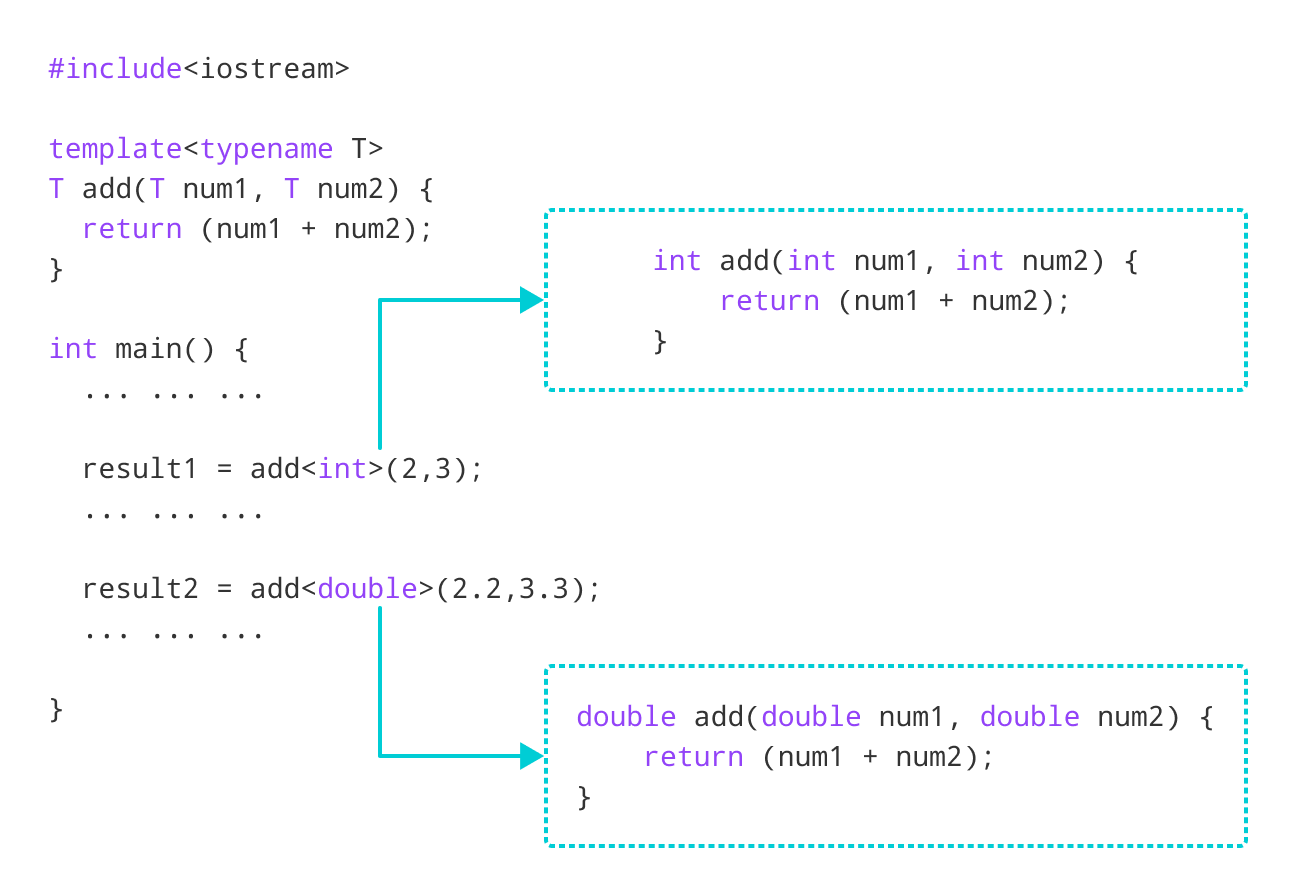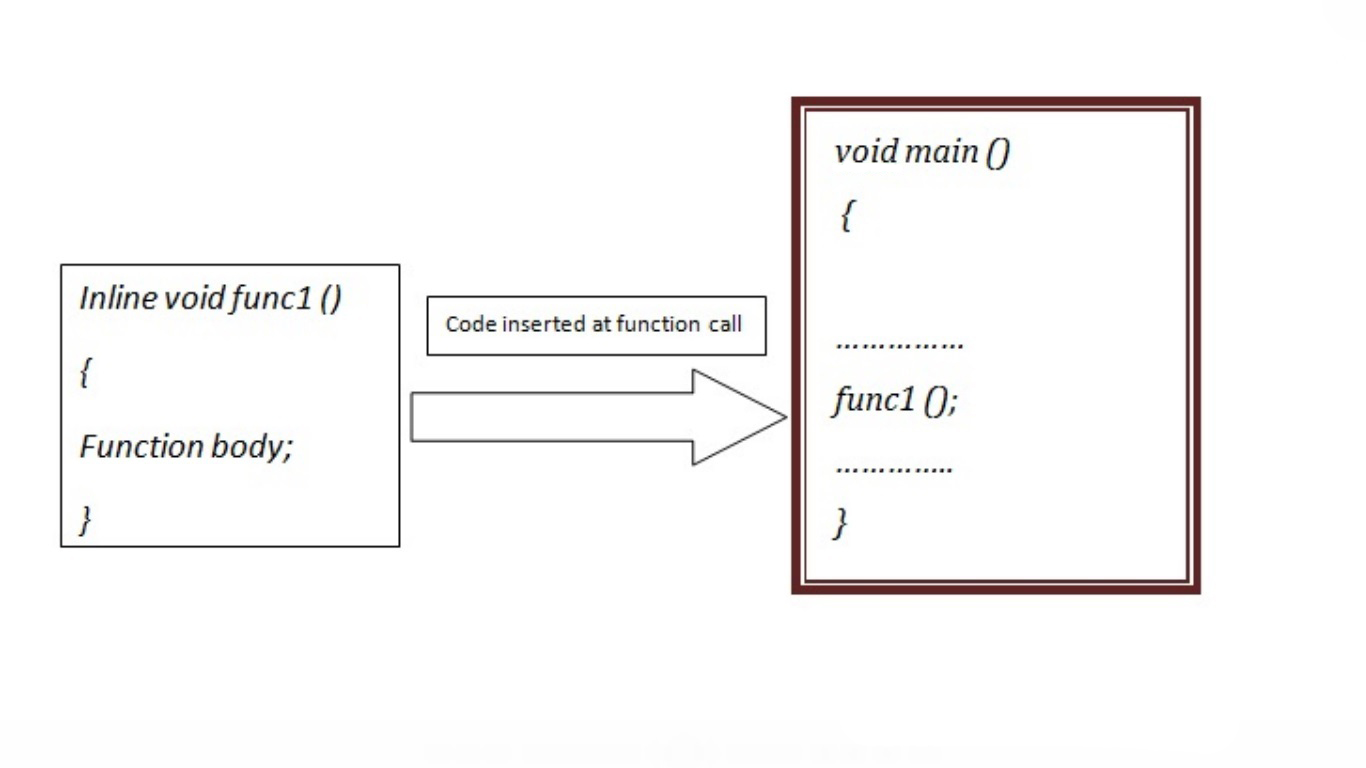C++ Function Templates
C++ Function Templates - With function templates, you can specify a set of functions that are based. This allows us to create a function template whose functionality can be adapted to more than one. Web a template is a c++ entity that defines one of the following: This allows a function or class. In your particular case, there certainly is no use for them, and if you really need to access the member. Web the first solution is to put the burden on the caller to convert the arguments into matching types. Web whether an explicit specialization of a function or variable (since c++14) template is inline /constexpr (since c++11) /constinit/consteval (since c++20) is. Web in general, template templates aren’t worth the trouble. Web the advantage of these last two approaches is that the caller of f can provide a tuple of lambdas, functors, function pointers, or any combination that is compatible. Web (may 2009) templates are a feature of the c++ programming language that allows functions and classes to operate with generic types. This allows a function or class. Defining a function template follows the same syntax as a regular. Web for cases such as this, c++ has the ability to define functions with generic types, known as function templates. A family of classes (class template), which may be nested classes. Web the process of creating functions (with specific types) from function templates. The template arguments must be determined so that the compiler can generate an actual. Web function templates are special functions that can operate with generic types. Web (may 2009) templates are a feature of the c++ programming language that allows functions and classes to operate with generic types. Web for cases such as this, c++ has the ability to define. Web the parameter func is declared as std::function, and you're trying to pass a function pointer, which requires implicit conversion.template argument deduction. No code is generated from a source file that contains only template definitions. Template t operator () () { /* return some t */ }; Web for cases such as this, c++ has the ability to define functions. Web the advantage of these last two approaches is that the caller of f can provide a tuple of lambdas, functors, function pointers, or any combination that is compatible. Web (may 2009) templates are a feature of the c++ programming language that allows functions and classes to operate with generic types. Web in general, template templates aren’t worth the trouble.. In your particular case, there certainly is no use for them, and if you really need to access the member. Web a template is a construct that generates an ordinary type or function at compile time based on arguments the user supplies for the template parameters. Web the process of creating functions (with specific types) from function templates (with template. Web in general, template templates aren’t worth the trouble. In order for any code to appear, a template must be instantiated: Web a template is a c++ entity that defines one of the following: Web a template is a construct that generates an ordinary type or function at compile time based on arguments the user supplies for the template parameters.. Web a template is a c++ entity that defines one of the following: Web the advantage of these last two approaches is that the caller of f can provide a tuple of lambdas, functors, function pointers, or any combination that is compatible. Web in general, template templates aren’t worth the trouble. Web a template is a construct that generates an. Web the parameter func is declared as std::function, and you're trying to pass a function pointer, which requires implicit conversion.template argument deduction. Web the advantage of these last two approaches is that the caller of f can provide a tuple of lambdas, functors, function pointers, or any combination that is compatible. A family of functions (function. Web function templates are. Web a template is a c++ entity that defines one of the following: Web the first solution is to put the burden on the caller to convert the arguments into matching types. Web in c++, can you have a templated operator on a class? Template t operator () () { /* return some t */ }; Instances of std::function can. In order for any code to appear, a template must be instantiated: With function templates, you can specify a set of functions that are based. Web c++ functions c++ functions call by value & reference c++ recursion c++ storage classes c++ arrays c++ arrays c++ array to function multidimensional arrays c++. Web in general, template templates aren’t worth the trouble.. With function templates, you can specify a set of functions that are based. In order for any code to appear, a template must be instantiated: Web the first solution is to put the burden on the caller to convert the arguments into matching types. A family of functions (function. A family of classes (class template), which may be nested classes. #include template t max(.</p> Web for cases such as this, c++ has the ability to define functions with generic types, known as function templates. Web a template is a c++ entity that defines one of the following: Web (may 2009) templates are a feature of the c++ programming language that allows functions and classes to operate with generic types. Web in c++, can you have a templated operator on a class? Web function templates are similar to class templates but define a family of functions. Web c++ functions c++ functions call by value & reference c++ recursion c++ storage classes c++ arrays c++ arrays c++ array to function multidimensional arrays c++. This allows a function or class. Web the process of creating functions (with specific types) from function templates (with template types) is called function template instantiation (or. Defining a function template follows the same syntax as a regular. Template t operator () () { /* return some t */ }; In your particular case, there certainly is no use for them, and if you really need to access the member. Web the parameter func is declared as std::function, and you're trying to pass a function pointer, which requires implicit conversion.template argument deduction. The template arguments must be determined so that the compiler can generate an actual. Web function templates are special functions that can operate with generic types. Template t operator () () { /* return some t */ }; This allows us to create a function template whose functionality can be adapted to more than one. Web (may 2009) templates are a feature of the c++ programming language that allows functions and classes to operate with generic types. Web in general, template templates aren’t worth the trouble. Web the advantage of these last two approaches is that the caller of f can provide a tuple of lambdas, functors, function pointers, or any combination that is compatible. Web the first solution is to put the burden on the caller to convert the arguments into matching types. The template arguments must be determined so that the compiler can generate an actual. Web in c++, can you have a templated operator on a class? In your particular case, there certainly is no use for them, and if you really need to access the member. In order for any code to appear, a template must be instantiated: #include template t max(.</p> Instances of std::function can store, copy, and invoke any copyconstructible. A family of functions (function. Web function templates are special functions that can operate with generic types. Web the process of creating functions (with specific types) from function templates (with template types) is called function template instantiation (or. A function template by itself is not a type, or a function, or any other entity.C++ Redefinition Of Template Function
Templates in C++ Simple Snippets
C++ Templates Function Template YouTube
C++ Redefinition Of Template Function
C++ Redefinition Of Template Function
C++ Programming Inline Function (Working mechanism & Example)
C++ Template RAVISHING TEMPLATES
C++ Function Templates YouTube
C++ Template Function In Class? Trust The Answer
Top 50 C++ Interview questions and Answers
Defining A Function Template Follows The Same Syntax As A Regular.
Web A Template Is A C++ Entity That Defines One Of The Following:
Web The Parameter Func Is Declared As Std::function, And You're Trying To Pass A Function Pointer, Which Requires Implicit Conversion.template Argument Deduction.
No Code Is Generated From A Source File That Contains Only Template Definitions.
Related Post:








